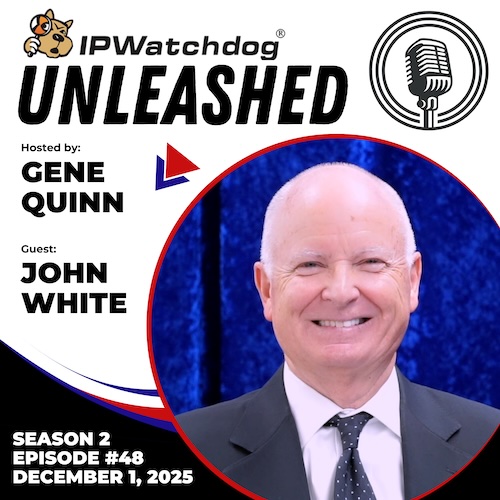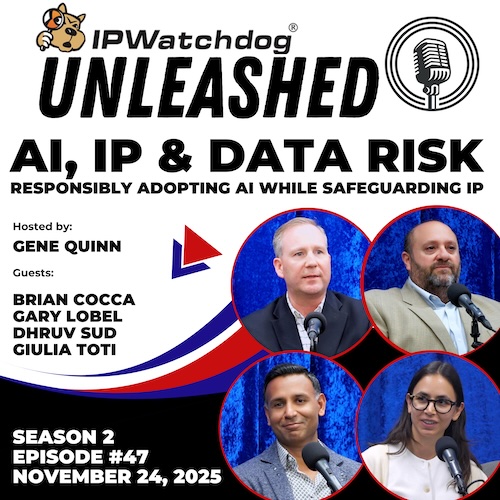Posts in Federal Circuit
The U.S. Court of Appeals for the Federal Circuit (CAFC) today affirmed a Patent Trial and Appeal Board (PTAB) ruling that claims of DexCom, Inc.’s patent for implantable glucose sensors were unpatentable as obvious. The CAFC opinion was authored by Judge Nina Y. Wang of the United States District Court for the District of Colorado, sitting by designation.
On Wednesday, the U.S. Court of Appeals for the Federal Circuit issued a precedential decision in Laboratory Corp. of America Holdings v. Qiagen Sciences, LLC reversing the District of Delaware’s denial of Qiagen’s motion for judgment as a matter of law (JMOL) of non-infringement. The Federal Circuit found that the jury’s infringement verdict rested upon insufficient evidence, faulting the district court for improperly turning a claim construction matter over to the jury and for conducting an erroneous infringement analysis under the doctrine of equivalents.
The U.S. Court of Appeals for the Federal Circuit (CAFC) on Thursday affirmed a district court’s finding on remand from an earlier CAFC decision that several hoverboard design patents were not infringed by hoverboard products sold online. The patents at issue are U.S. Patent Nos. D737,723 (“D’723 patent”), D738,256 (“D’256 patent”), D784,195 (“D’195 patent”), and D785,112 (“D’112 patent”). In 2022, in two separate precedential opinions, the Federal Circuit vacated two preliminary injunction orders granted by the U.S. District Court for the Northern District of Illinois against hoverboard products alleged to infringe four of Hangzhou Chic Intelligent Technology Co Ltd’s design patents.
The U.S. Court of Appeals for the Federal Circuit (CAFC) on Wednesday vacated a district court’s grant of summary judgment of non-infringement for Apple, holding that the district court abused its discretion in striking an expert infringement opinion. The CAFC opinion was authored by Chief Judge Moore. The underlying lawsuit was brought by Taction Technology, Inc. against Apple in the U.S. District Court for the Southern District of California, alleging certain Apple products that use haptics technology infringed claims 1–20 of its U.S. Patent No. 10,659,885 and claims 1–17 of its U.S. Patent No. 10,820,117. Apple moved for summary judgment of noninfringement and the district court granted the motion because it said Taction’s expert opinion “contained a new theory in violation of local patent rules and improperly argued claim construction.”
In a petition for certiorari docketed August 6, trademark applicant Thomas Foster filed a petition for writ of certiorari with the U.S. Supreme Court asking to overturn a May ruling by the U.S. Court of Appeals for the Federal Circuit affirming a trademark examiner’s refusal to register the standard character mark “US SPACE FORCE.” Along with raising constitutional challenges, Foster also contends that the Federal Circuit’s ruling undermines Lanham Act statutory provisions affording applicants the right to a constructive use date.
On Monday, August 11, the U.S. Court of Appeals for the Federal Circuit (CAFC) issued a precedential ruling in PowerBlock Holdings, Inc. v. iFit, Inc., reversing a decision from the U.S. District Court for the District of Utah that had invalidated nearly all claims of PowerBlock’s U.S. Patent No. 7,578,771 under 35 U.S.C. § 101. The Federal Circuit held that independent claims 1 and 20 of the patent are not directed to an abstract idea and therefore are patent-eligible.
The U.S. Court of Appeals for the Federal Circuit (CAFC) on Friday issued a precedential decision, authored by Judge Hughes, reversing a district court’s decision to uphold the claims of a patent owned by Mondis Technology, Ltd. The underlying decision was issued by the U.S. District Court for the District of New Jersey pursuant to a jury verdict that found LG Electronics had not proven the patent claims invalid and that LG’s accused products infringed. The jury awarded Mondis $45 million in damages.
Today, the U.S. Court of Appeals for the Federal Circuit issued a ruling in American Science and Engineering, Inc. v. Stewart vacating a final written decision by the Patent Trial and Appeal Board (PTAB) that invalidated several of American Science and Engineering’s (AS&E) patent claims covering inspection systems using pencil-beam radiation sources. The appellate court faulted the PTAB for not properly articulating how the asserted prior art’s scatter detectors can detect radiation from the claimed pencil-beam configuration.
In a recent ruling with significant implications for patent licensing disputes, the U.S. Court of Appeals for the Federal Circuit’s decision in Acorda Therapeutics, Inc. v. Alkermes Pharma Ireland Ltd., No. 2023-2374 (Fed. Cir. July 25, 2025), demonstrates just how critical proper jurisdictional framing is when contesting patent-related arbitration awards. The case reminds practitioners and stakeholders that even when patents sit at the heart of a dispute, the way a claim is framed can determine whether the matter will be heard by a federal court—or deflected into purely state law territory.
On Friday, August 1, the U.S. Court of Appeals for the Federal Circuit (CAFC) issued a precedential ruling in FMC Corp. v. Sharda USA, LLC vacating the Eastern District of Pennsylvania’s preliminary injunction order preventing Sharda from importing, selling or distributing its “WINNER” insecticide. The Federal Circuit found that the district court’s grant of injunctive relief rested on an erroneous claim construction for “composition” that failed to take into account the removal of references to stable compositions from the specification of the asserted patents.
The U.S. Court of Appeals for the Federal Circuit (CAFC) on Tuesday affirmed a district court’s finding that Netflix, Inc. had proven the challenged claims of CA, Inc.’s patent for distributed computing technology obvious. The opinion was authored by U.S. District Judge Jennifer Hall of the U.S. District Court for the District of Delaware, sitting by designation.
On Monday, the U.S. Court of Appeals for the Federal Circuit issued a precedential ruling in Jiaxing Super Lighting Electric Appliance v. CH Lighting Technology reversing the Western District of Texas’ judgment as a matter of law (JMOL) that Jiaxing’s patents were not invalid under the on-sale bar, and vacating the jury’s damages verdict. In relevant part, the Federal Circuit held that the district court erred in excluding evidence that prior art light-emitting diode (LED) tubes were on sale prior to the effective filing date of Super Lighting’s patents, prejudicing CH Lighting’s invalidity argument.
The Special Committee of the U.S. Court of Appeals for the Federal Circuit (CAFC) that has been investigating the alleged misconduct of Judge Pauline Newman since April 2023 has recommended extending her suspension from the court. Federal Circuit Chief Judge Kimberly Moore first identified a complaint against Newman in April 2023. IPWatchdog was the first to break the news, and the court soon published a statement responding to media reports and making previously sealed documents public. Since then, Newman’s suspension has been upheld and was extended for an additional year in 2024. The Judicial Council of the Federal Circuit last adopted the report and recommendation of the Special Committee in September 2024.
The U.S. Court of Appeals for the Federal Circuit (CAFC) on Friday, July 25, transferred an appeal over an award issued in an international arbitration and confirmed by a U.S. district court, ruling that the CAFC does not have jurisdiction over the case. In the precedential ruling authored by Judge Taranto, the CAFC transferred the appeal to the U.S. Court of Appeals for the Second Circuit because it said Acorda Therapeutics, Inc.’s petition to modify an arbitral award of $16,554,267 was not within its jurisdiction.
Xerox today lost an appeal to the U.S. Court of Appeals for the Federal Circuit (CAFC) against Snap, Inc., Meta and X Corp over the Patent Trial and Appeal Board’s (PTAB’s) invalidation of Xerox’s patent on techniques for content delivery. Xerox’s U.S. Patent No. 8,489,599 is titled “Context and Activity-Driven Content Delivery and Interaction” and is directed to “techniques and systems for creating and presenting content based on contextual information.” Snap, Meta and X each filed inter partes review (IPR) petitions challenging claims of the patent based on different prior art. The PTAB instituted all of the petitions and then consolidated them and issued one final written decision determining that the petitioners had collectively established unpatentability.

Latest IPW Posts
CAFC Gives Targeted Ads Patent Owner Second Shot at Meta Due to District Court Error
December 7, 2025 @ 12:15 pmUSPTO Reminds Examiners, Applicants to Consider and Use Eligibility Declarations Wisely
December 4, 2025 @ 05:05 pmNinth Circuit Affirms Trademark Injunction Against OpenAI Company in Dispute Over Similar Marks
December 4, 2025 @ 01:15 pmSCOTUS Delays Trump Bid to Oust Perlmutter Pending Arguments in Similar Cases
December 4, 2025 @ 08:15 am
Latest Podcasts

IPWatchdog Events
Webinar: Remedies for Standards Essential Patent Disputes in the US
December 11 @ 12:00 pm - 1:00 pm ESTIPWatchdog LIVE 2026 at the Renaissance Arlington Capital View
March 22, 2026 @ 1:00 pm - March 24, 2026 @ 7:00 pm EDT

![[IPWatchdog Logo]](https://ipwatchdog.com/wp-content/themes/IPWatchdog%20-%202023/assets/images/temp/logo-small@2x.png)
![[Advertisement]](https://ipwatchdog.com/wp-content/uploads/2025/12/Harfang-IP-Dec-11-2025-sidebar-700x500-1.jpg)
![[Advertisement]](https://ipwatchdog.com/wp-content/uploads/2025/11/Juristat-Ad-Firm-Cost-Management-Nov-18-Dec-31-2025-Animated-Varsity-Ad-final.gif)
![[Advertisement]](https://ipwatchdog.com/wp-content/uploads/2025/11/PTAB-Masters-2026-sidebar-early-bird-700x500-1.jpg)





![[Advertisement]](https://ipwatchdog.com/wp-content/uploads/2021/12/WEBINAR-336-x-280-px.png)
![[Advertisement]](https://ipwatchdog.com/wp-content/uploads/2021/12/Ad-4-The-Invent-Patent-System™.png)